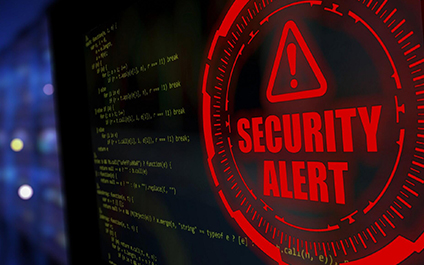
Disaster Recovery and Business Continuity: Essential for Business Owners
Discover why disaster recovery and business continuity are crucial for business owners. Learn how to protect your data and ensure business continuity in times of crisis.
As a business owner, you know that the success of your business depends on many factors. One of the most important factors is the ability to adapt and overcome challenges, especially in times of crisis. With the increasing reliance on technology and data, having a solid disaster recovery and business continuity plan in place is absolutely crucial.
In this blog post, we will explore the importance of disaster recovery and business continuity for business owners. We will delve into why it is essential to protect your data and ensure business continuity in times of crisis. Additionally, we will provide you with valuable insights on how to implement effective strategies to safeguard your business and bounce back stronger than ever. So, let's dive in and discover how disaster recovery and business continuity can be the lifeline your business needs to thrive.
The Risks of Data Loss and Disruption
Every business faces the risk of data loss and disruption. Whether it's a natural disaster, cyberattack, or system failure, the impact of data loss can be devastating. Without an effective disaster recovery plan, your business may suffer from prolonged downtime, loss of revenue, damage to reputation, and even permanent closure. It is, therefore, imperative for business owners to prioritize disaster recovery and have a robust backup solution in place.
Data Loss
Data loss can occur in various ways. Natural disasters such as floods, fires, earthquakes, or storms can destroy physical infrastructure and storage devices where critical business data is stored. Additionally, cyberattacks pose a significant threat to businesses of all sizes. According to a report by Cybersecurity Ventures, cybercrime is predicted to cost the global economy $10.5 trillion annually by 2025.
Malware attacks, ransomware, phishing, or hacking attempts can not only compromise your data but also disrupt your operations and put your customers' sensitive information at risk. Even system failures or hardware malfunctions can lead to data loss and downtime, hampering your ability to serve customers and maintain business continuity.
The Benefits of Disaster Recovery and Business Continuity
- Data Protection: One of the primary goals of disaster recovery and business continuity is to protect your data. A comprehensive backup solution ensures that your critical business data is backed up regularly and securely. This protects your data from loss or corruption, allowing you to recover it quickly in the event of a disaster.
- Minimize Downtime: Downtime can be extremely costly for businesses. With a well-designed disaster recovery plan in place, you can minimize downtime and get your business up and running again as quickly as possible. By implementing strategies like data replication, redundant systems, and failover mechanisms, you ensure that your business can continue operating even in the face of a disaster or data loss.
- Maintain Customer Trust: In times of crisis, maintaining customer trust is crucial. By having a robust disaster recovery and business continuity plan, you can demonstrate to your customers that their data is safe with you. Furthermore, a well-prepared business that can quickly recover from a disaster and resume operations instills confidence in customers. This helps build trust and credibility in your brand, leading to stronger customer relationships and increased loyalty.
Implementing an Effective Disaster Recovery Plan
- Assess Your Risks: To develop an effective disaster recovery plan, business owners need to assess the risks that can potentially disrupt their operations and cause data loss.
- Backup Solutions: Implementing a reliable backup solution is a key element of a disaster recovery plan.
- IT Infrastructure: Your IT infrastructure plays a vital role in disaster recovery and business continuity.
- Disaster Preparedness: Being prepared for disasters is key to successfully responding and recovering from them.
- Test and Update: Regularly testing and updating your disaster recovery plan is vital to its effectiveness.
In conclusion, disaster recovery and business continuity are critical for business owners to protect their data and ensure the continuity of operations in times of crisis.
Strategic Business Continuity Planning
Strategic business continuity planning is the cornerstone of a resilient organization. It's all about the development and implementation of a detailed strategy that ensures an organization's ability to continue essential operations during and after a disaster. This involves identifying critical business functions, assessing potential risks, and formulating proactive measures to mitigate these risks.
The plan should provide clear guidelines on resource allocation, personnel responsibilities, and communication protocols. Regular testing and updates are crucial to ensure the plan's effectiveness. A well-crafted business continuity plan not only safeguards against disruptions but also fosters a culture of preparedness and adaptability within the organization.
Comprehensive Business Impact Analysis
A Comprehensive Business Impact Analysis (BIA) is a meticulous examination that evaluates the potential effects of disruptions on various aspects of business operations. We should focus on the critical process of identifying and prioritizing key business functions, dependencies, and vulnerabilities.
The BIA goes beyond assessing immediate financial losses, delving into the broader implications on reputation, customer satisfaction, and regulatory compliance. By conducting a thorough BIA, organizations gain invaluable insights to tailor their disaster recovery and business continuity strategies, ensuring a targeted and efficient response to minimize disruptions and expedite the recovery process.
Employee Training and Communication Protocols
In times of crisis, well-prepared employees are an organization's greatest asset. We should never forget the importance of training employees to respond effectively during disasters and establishing clear communication protocols. Employee training should cover emergency procedures, evacuation plans, and the use of any specialized tools or equipment. Furthermore, establishing reliable communication channels is vital for disseminating information promptly.
This includes not only internal communication among employees but also communication with external stakeholders, clients, and suppliers. Regular drills and simulations can enhance preparedness, ensuring that employees are well-equipped to handle unforeseen challenges and contribute to the overall resilience of the business.
Protecting Your Data
The importance of disaster recovery and business continuity for business owners cannot be overstated. The cost of data loss, both in terms of finances and reputation, can be devastating. By implementing a comprehensive disaster recovery plan, including backup solutions, prioritizing IT infrastructure, and conducting risk assessments, you can protect your business and ensure its survival in times of crisis. Embracing a proactive approach to disaster preparedness and building resilience will position your business for long-term success. So, take the necessary steps today to safeguard your data, protect your business, and ensure business continuity in times of uncertainty. Don't wait until it's too late - act now!
Visit our website and learn more about backup solutions, disaster preparedness, and data protection.


